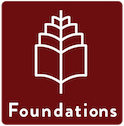Blog
READ Saskatoon’s Importance in Healthcare Outcomes – Perspective of a Summer Student
0 Comment During my time at READ Saskatoon as a summer student, I had the opportunity to engage with families through Family Literacy programs such as 1, 2 Buckle my Shoe and Eensy Weensy Rhymers. I also participated in Spark, the children’s literacy program, where I worked one-on-one with young students encouraging them to meet their goal of reading at grade level. From working with the family literacy program, I have learned that it is essential for families to have a safe learning environment where they can form bonds and feel supported. Additionally, from working with the young learners in Spark, I was given the chance to be a small part of their education that benefitted me as much as it did them.
During my time at READ Saskatoon as a summer student, I had the opportunity to engage with families through Family Literacy programs such as 1, 2 Buckle my Shoe and Eensy Weensy Rhymers. I also participated in Spark, the children’s literacy program, where I worked one-on-one with young students encouraging them to meet their goal of reading at grade level. From working with the family literacy program, I have learned that it is essential for families to have a safe learning environment where they can form bonds and feel supported. Additionally, from working with the young learners in Spark, I was given the chance to be a small part of their education that benefitted me as much as it did them.
According to the Government of Saskatchewan literacy skills are essential to obtaining employment, better wages, and improving health outcomes [1]. READ Saskatoon’s values align with that concept, understanding that literacy leads to an overarching goal of wellness for many people in our province. Through the work READ Saskatoon accomplishes, I have seen ways organizations can help lift obstacles many people face because “low literacy is part of a wall of compounding barriers to health and wellbeing: poor physical health, compromised mental health, limited mobility, low income, and social isolation can easily reinforce one another[2].” It is important for many different organizations to work together to reduce the barriers individuals in our province face, including giving people the tools to take control of their healthcare needs.
The Centers for Disease Control and Prevention defines healthcare literacy as “the degree to which individuals have the ability to find, understand, and use information and services to inform health-related decisions and actions for themselves and others[3].” Healthcare literacy is an extension of traditional literacy that many people struggle with due to their basic reading and comprehension skills. Research by the Canadian Council on Learning suggests that “to master health-literacy tasks, adults are usually required to use their prose literacy, document literacy and numeracy skills simultaneously[4].” Having a strong foundation in reading comprehension is vital and I now possess a deeper understanding of how detrimental having low literacy skills can be, as it also impacts the understanding of healthcare treatments. Organizations like READ Saskatoon are essential to increase health outcomes of at-risk populations. Canadians with low literacy skills regularly face obstacles when they need to seek healthcare for themselves or their families, and it is apparent that giving them the tools to enhance their literacy skills will lead to better health outcomes.
Connecting with my community was a crucial step I decided to take on my journey to becoming a healthcare provider because it granted me insight into the struggles and barriers individuals face every day. Working with READ Saskatoon has given me the humbling opportunity to connect and appreciate the different perspective individuals hold within my community. I learned the importance of tying social support and literacy skills into healthcare because being healthy goes far beyond the concept of physical wellness. I feel as though I have been given a window to look through and learn about social justice and ethics; a great base to continue my learning in the medical field. Reaching out to families and being able to engage with individuals utilizing the programs has given me a broader perspective that I can take with me into healthcare.
Madison Longmuir
READ Saskatoon Summer Student
[1] “Literacy in Saskatchewan.” Government of Saskatchewan, www.saskatchewan.ca/residents/education-and-learning/literacy-insaskatchewan.
[2] “Literacy and Health.” Frontier College- Frontier College Nation Forum Literacy and Health, www.frontiercollege.ca/getattachment/a66218e5-7010-4958-b4a1-3bcaca5a6e2d/discussionpaper.aspx
[3] “What Is Health Literacy?” Centers for Disease Control and Prevention, Centers for Disease Control and Prevention, 19 May 2021, www.cdc.gov/healthliteracy/learn/index.html.
[4] Health Literacy in Canada: A Healthy Understanding 2008 (Ottawa 2008). 38 pages,www.en.copian.ca/library/research/ccl/health/health.pdf.

